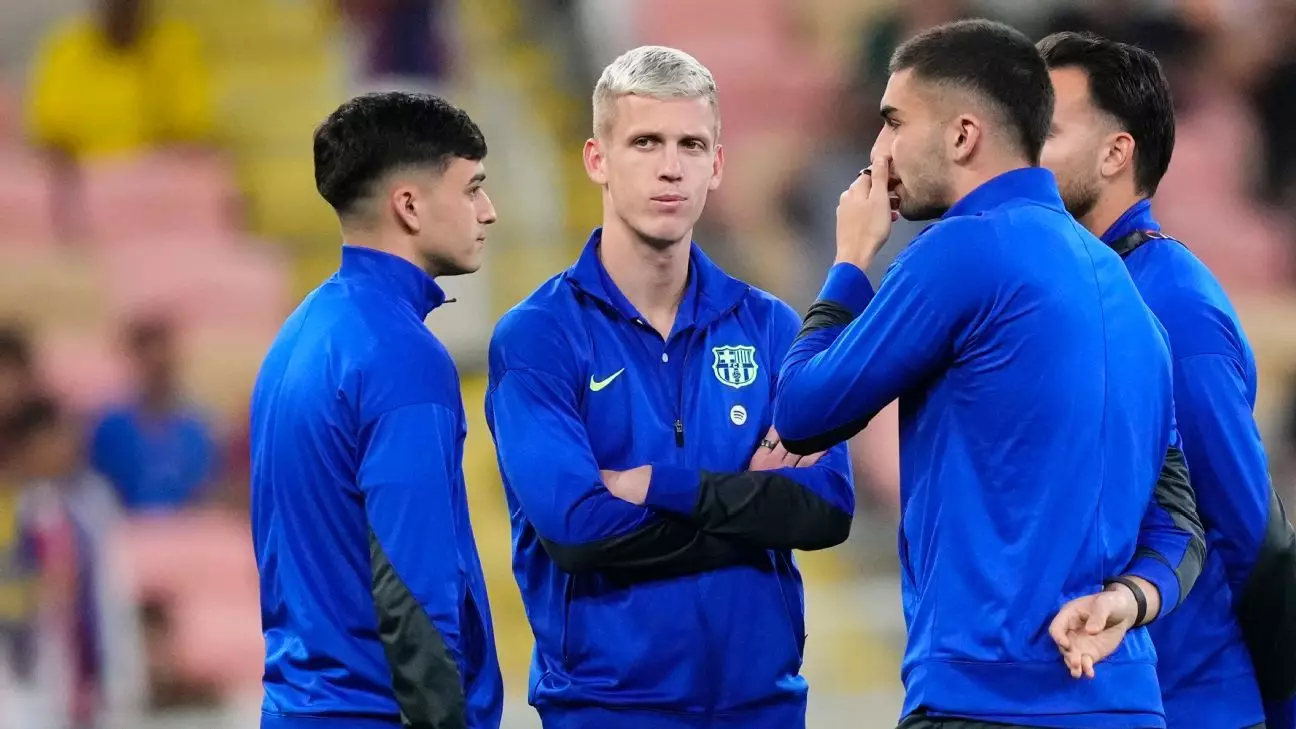The ongoing tensions surrounding FC Barcelona and Athletic Club highlight the complexities and controversies plaguing Spanish football. Recently, Barcelona secured temporary playing registrations for its new signings, Dani Olmo and Pau Víctor, despite initially being denied by LaLiga and the Royal Spanish Football Federation (RFEF). This decision came after the club missed a compliance deadline tied to financial fair play regulations by December 31. The situation escalated when Barcelona successfully appealed to the Sports Council of Spain (CSD), advocating for a provisional permit for the players to participate in games pending the outcome of a final ruling.
Criticism from rival club Athletic Club has not been subdued. Athletic’s president, Jon Uriarte, lambasted the CSD’s ruling, labeling it “grotesque.” He suggested that such provisional decisions taken by a “political body” undermine the integrity of the sport, raising questions about the consistency and fairness of regulations within Spanish football. The backdrop of this controversy was heightened by Athletic’s recent loss to Barcelona in the Spanish Supercopa semifinal, which further intensified Uriarte’s comments about the current state of affairs in the league.
At the heart of the discussion is the troubling dichotomy between ethics and pragmatic decision-making in football. Clubs are tasked with meeting stringent financial criteria and growing their brands, while simultaneously navigating administrative hurdles that can seem insurmountable. Athletic Club’s concerns resonate with many who believe strict adherence to rules is essential for preserving the integrity and competitiveness of the league. Uriarte’s remarks shed light on wider frustrations held by smaller clubs that often see themselves at a disadvantage against more significant institutions like Barcelona, which possess a broader array of resources and contacts.
Deco, Barcelona’s sporting director, responded to the backlash by highlighting the need for clubs to focus on their issues rather than tearing down rivals. By stating that “everything else is in the hands of the governing bodies,” Deco attempted to shift the narrative and emphasize self-regulation and responsibility. However, this assertion only partially addresses the grievances from other clubs, particularly Athletic, which have openly questioned the equality of the system.
The discord felt at the leadership level extends to players like Iñaki Williams, who voiced his concerns regarding the impact of situations like this on Spanish football’s image. He articulated a sentiment felt by many athletes: uncertainty about the integrity of the sport breeds distrust among fans and players alike. It is not just the regulations but the perception of fairness that holds importance; if discrepancies become apparent, they can erode the foundation of trust that underpins sporting competitions.
LaLiga president Javier Tebas echoed these sentiments, criticizing the CSD’s decision and urging for greater transparency from governing bodies. His comments point toward an uneasiness within the league regarding how decisions are made and which interests are prioritized. The apparent “complicit silence” from Real Madrid TV further fueled speculation about favoritism, suggesting that different clubs might be afforded different standards. These are systemic issues that hint at a deeper need for reform within the Spanish football hierarchy.
The unfolding situation underscores a significant dilemma in football governance: how to maintain competitiveness while ensuring fair play. Provisional rulings, like those surrounding Olmo and Víctor, create a precedent that calls into question the overarching framework of regulations designed to ensure integrity. The lack of a consistent approach may lead clubs to develop retaliatory strategies that detract from the collective objective of fostering an equitable sports environment.
This moment could serve as a catalyst for meaningful dialogue among stakeholders within Spanish football. It is essential that governing bodies, clubs, and players unite to reform existing structures, establish more transparent regulations, and cultivate an ethos of fairness and respect within the league. Only then can Spanish football hope to restore trust among its participants and maintain a competitive balance that appeals to fans and sponsors alike.
The concern raised by Athletic Club highlights broader issues of accountability and professionalism in Spanish football. As athletic integrity is debated, one can only hope that responsible actions follow to unify the league and promote a fair playing field for all.

